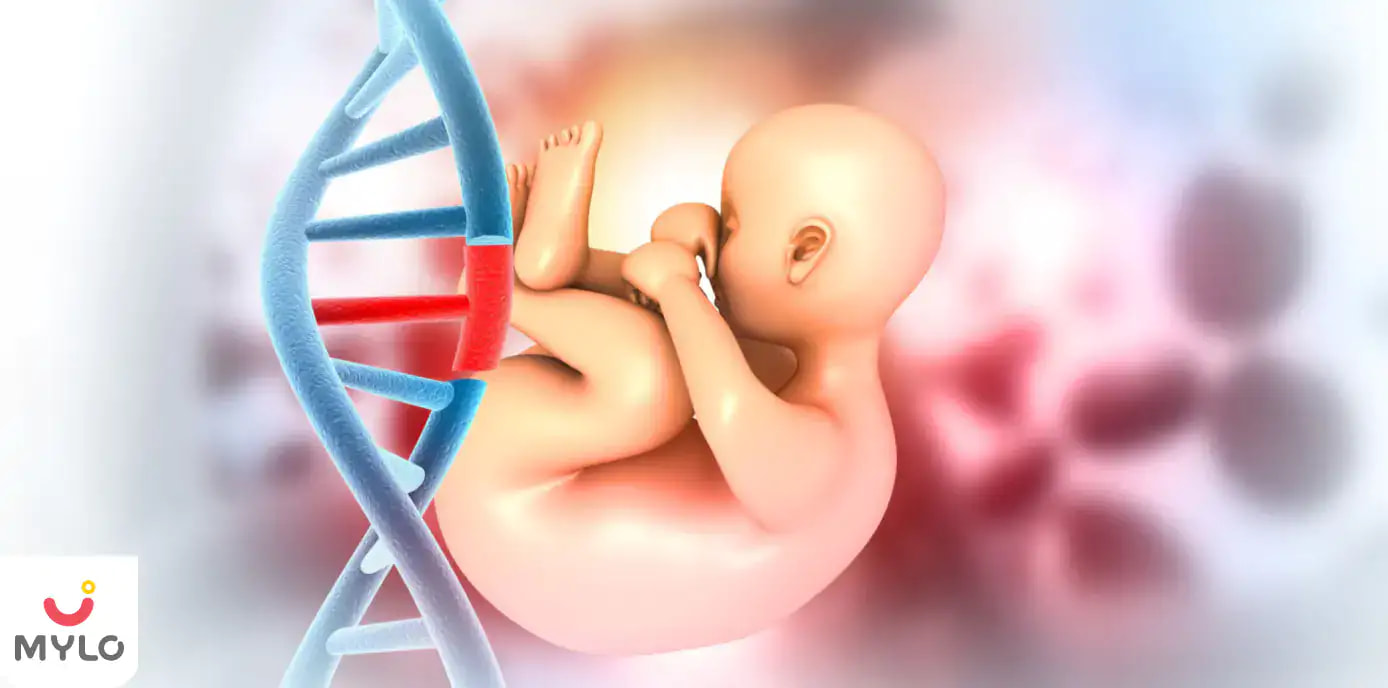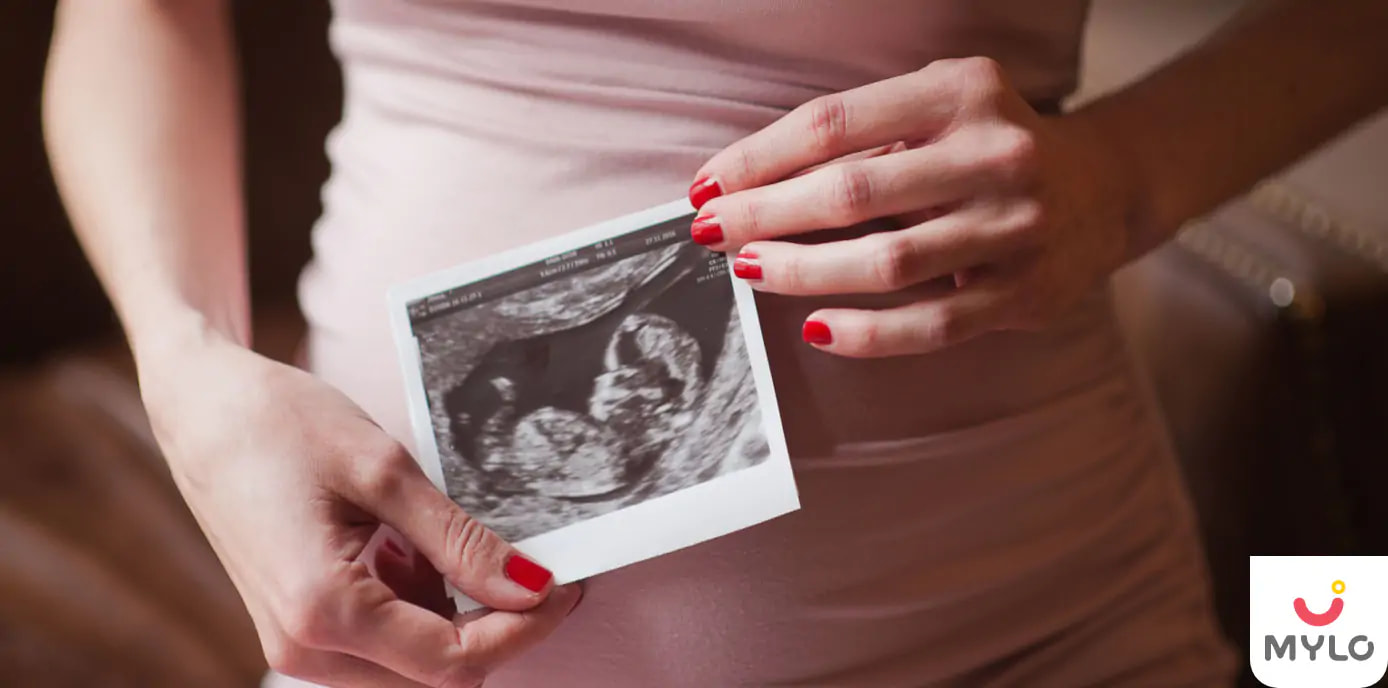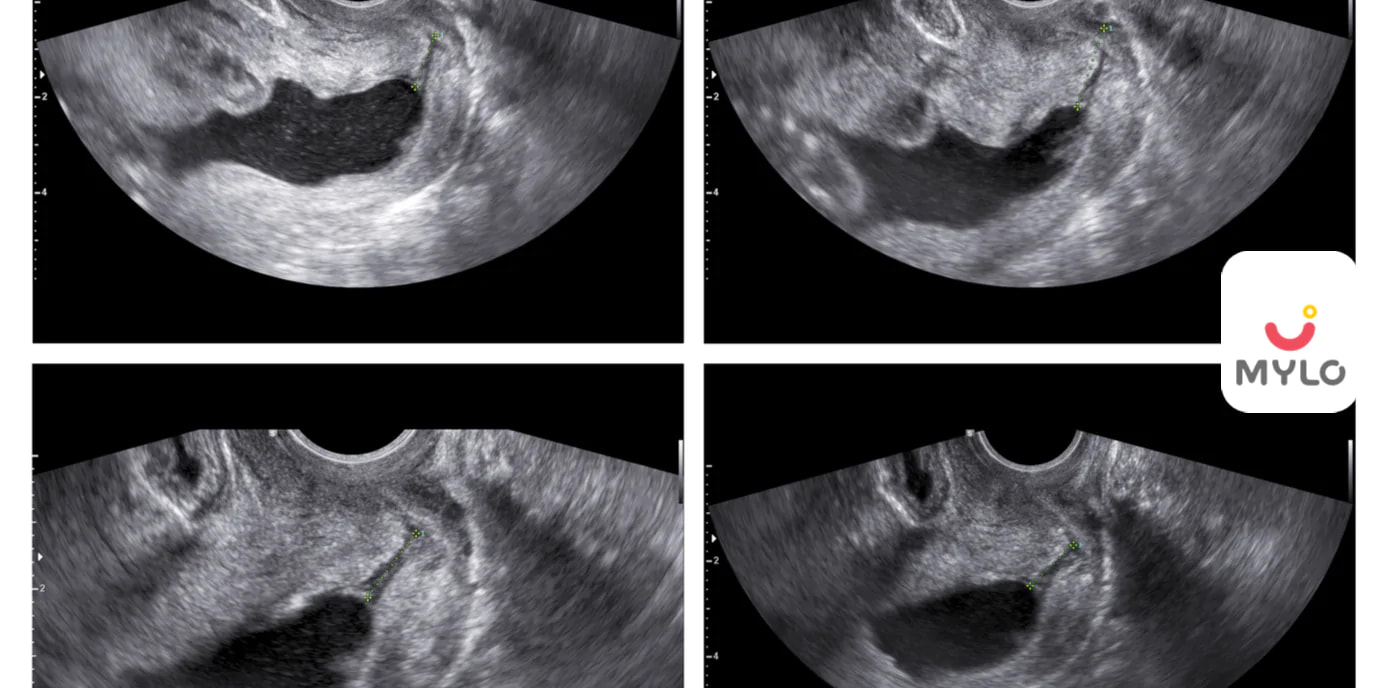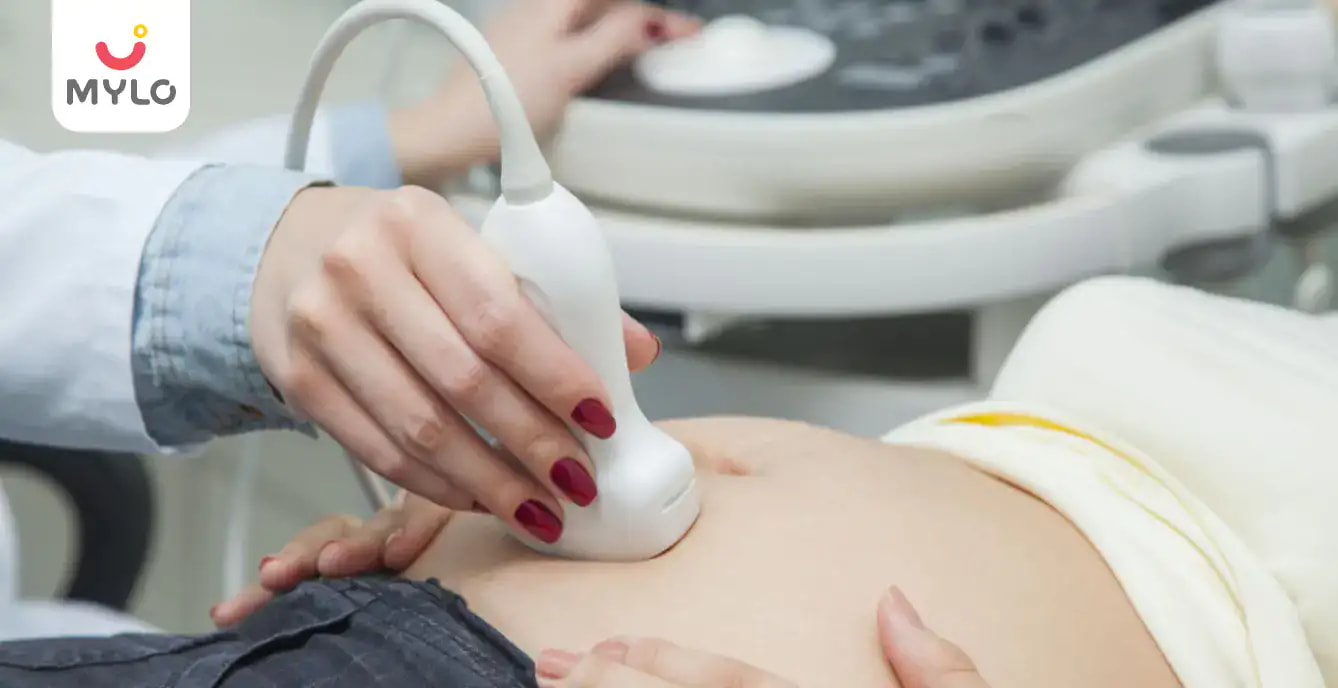Home

Scans & Tests

When Do Sex Organs Develop In Your Baby In The Womb?
In this Article

Scans & Tests
When Do Sex Organs Develop In Your Baby In The Womb?
Updated on 3 November 2023



Medically Reviewed by
Dr. Vani Puri
Obstetrician- Gynecologist, Infertility Specialist - MBBS| DGO, DNB
View Profile

Do you have an upcoming sonogram process? Are you excited to learn more about your baby as well as the overall fetal growth? Indeed, a sonogram can help the doctor monitor your unborn baby. Apart from that, your doctor may also look out for unusual conditions or problems in your womb.
One of the most exciting things about this phase of pregnancy is to have the curiosity to know whether you will have a boy or a girl. Your doctor knows it but will make sure it’s a surprise for you as it’s illegal to find out the gender of your child in our country.
Apart from that, your gynaecologist may also provide you with a fetal growth chart to help you learn more about your baby’s growth. Besides, your doctor might also hide the genitals of the unborn child during the process of a sonogram.
How Are Doctors Able To Differentiate Between A Male And Female Baby In The Womb?
Genital ridge appears around 7-8 weeks of pregnancy and is easy for doctors to differentiate between the development of female and male sex organs inside the womb. A woman's eggs contain X chromosomes, whereas the sperm of a man carry either X or Y chromosomes. The 23rd pair of chromosomes develop the sexual organ of the baby. A combination of XX chromosomes means that the baby is female, and a combination of XY chromosomes means that your child is male.
During the first few weeks of your pregnancy, the genital structure of the baby will be the same internally and externally. The baby will start producing hormones that stimulate the growth of the sexual organs of the baby. Your baby’s gonads will eventually change and will either become testicles or ovaries later on.
You may also like: Baby Girl Belly vs Baby Boy Belly: Can Your Belly's Shape or Size Tell You're Having a Boy?
The phallus will turn into either a penis/scrotum or clitoris/labia. Around the 14th week of your pregnancy, the baby's urinary system and other organs are functioning correctly inside the womb. The external sex organs of the baby are fully developed by the 20th week of pregnancy. As your baby grows, your body will feel a bit heavy. Thus, a fetal weight chart might help you keep track of your baby’s growth!
By the 9th week, in boys, the genital ridge will begin to lengthen the penis, and the prostate will be formed by the 10th week. The penis of the baby will keep growing until the third trimester. By the 11th and 12th week, the genital ridge will develop into ovaries with approximately 7 million primitive eggs in girls. These eggs will slowly reduce, and your baby girl will be left with approximately 2 million eggs by her birth.
What Are Some Tests You Can Take To Ensure Your Baby’s Good Health?
By the third month of pregnancy, the uterus and vagina of the baby will be fully formed when the paramesonephric ducts fuse. Your doctor recommends you undergo various tests to confirm the excellent health of the baby, and they are as follows:
1. 3D Ultrasound
Your doctor can identify the gender of the baby quickly. The 3D ultrasound is an advanced technology because earlier in 2D ultrasound, the doctor couldn’t detect the gender of the baby.
2. Amniocentesis
Amniocentesis is done between 18-20 weeks of your pregnancy. It not only determines the gender of the baby but also identifies if there are any congenital disabilities or genetic defects in the baby. If the pregnant lady is above 35 years of age, the doctor strongly recommends that she undergo this test.
3. Chorionic Villus Sampling (CVS)
A chorionic villus sampling test is done around 10-12 weeks of your pregnancy and is predominantly done in pregnancies that are at high risk.
Are There Any Risks Associated With An Ultrasound Scan?
There aren’t any side effects associated with an ultrasound scan. Thus, this is because there isn’t any exposure to harmful radiation. However, a few scans, including CT scans, might involve radiation.
You may or may not experience discomfort during your ultrasound scan. Thus, this is generally because the probe used in the process may be pressed a bit deeper into your tummy. Yet again, internal or external ultrasound scans have any associated risks. In fact, they are completely painless.
When you opt for an internal scan, let the doctor know if you suffer from any latex allergies. The doctor can then opt for a probe that does not contain a latex cover. Apart from that, endoscopic ultrasound tests can be comparatively uncomfortable. Besides, they may also cause a few side effects, including sore throat and bloating. You may also be at risk of suffering from internal bleeding.
You may also like: Is it Safe to Get an Ultrasound Done During the First Trimester of Your Pregnancy?
What Are Some Of The Benefits Of An Ultrasound?
Taking an ultrasound test may be quite advantageous, especially for the reasons mentioned below.
- The test does not involve any form of needles or incisions.
- There is no exposure to harmful radiation.
- The test helps you to monitor your unborn baby.
- An ultrasound scan also captures various images of organs that may be difficult to see through X-rays.
- They are comparatively more accessible as well as affordable!
When going for a test, make sure to wear clothes that are easy to remove as well as wear back. Sometimes, an ultrasound doctor can also access various areas of your body without you taking off any clothing. Apart from that, your doctor might also give you an estimated fetal weight chart for your reference. Thus, this way, you will be able to keep better track of your baby’s growth.
An ultrasound test may last anywhere between half an hour to 60 minutes. You may find it a bit uncomfortable since you are conscious during the test. Often, your doctor will inform you about what they can see during a sonogram. You might have to wait for the entire procedure to end in order to discuss the result with your gynaecologist.
Conclusion
Now that you know in which week baby gender is developed, your curiosity to know your baby's gender may even be higher than before. And thus your guessing game begins.
References
1. Institute of Medicine (US) Committee on Understanding the Biology of Sex and Gender Differences; Wizemann TM, Pardue ML, editors. (2001). Exploring the Biological Contributions to Human Health: Does Sex Matter?. NCBI
2. DiPietro JA, Voegtline KM. (2017). The gestational foundation of sex differences in development and vulnerability. NCBI
3. D. Soriano, S. Lipitz, D.S. Seidman, R. Maymon, S. Mashiach, R. Achiron, (1999). Development of the fetal uterus between 19 and 38 weeks of gestation: in-utero ultrasonographic measurements.





Medically Reviewed by
Dr. Vani Puri
Obstetrician- Gynecologist, Infertility Specialist - MBBS| DGO, DNB
View Profile


Written by
Parul Sachdeva
A globetrotter and a blogger by passion, Parul loves writing content. She has done M.Phil. in Journalism and Mass Communication and worked for more than 25 clients across Globe with a 100% job success rate. She has been associated with websites pertaining to parenting, travel, food, health & fitness and has also created SEO rich content for a variety of topics.
Read MoreGet baby's diet chart, and growth tips

Related Articles
Related Topics
RECENTLY PUBLISHED ARTICLES
our most recent articles

Diet & Nutrition
গর্ভাবস্থায় আলুবোখরা: উপকারিতা ও ঝুঁকি | Prunes During Pregnancy: Benefits & Risks in Bengali

Diet & Nutrition
গর্ভাবস্থায় হিং | ঝুঁকি, সুবিধা এবং অন্যান্য চিকিৎসা | Hing During Pregnancy | Risks, Benefits & Other Treatments in Bengali

Women Specific Issues
স্তনের উপর সাদা দাগ: লক্ষণ, কারণ এবং চিকিৎসা | White Spots on Nipple: Causes, Symptoms, and Treatments in Bengali

Diet & Nutrition
গর্ভাবস্থায় পোহা: উপকারিতা, ধরণ এবং রেসিপি | Poha During Pregnancy: Benefits, Types & Recipes in Bengali

Diet & Nutrition
গর্ভাবস্থায় মাছ: উপকারিতা এবং ঝুঁকি | Fish In Pregnancy: Benefits and Risks in Bengali

Diet & Nutrition
গর্ভাবস্থায় রেড ওয়াইন: পার্শ্ব প্রতিক্রিয়া এবং নির্দেশিকা | Red Wine During Pregnancy: Side Effects & Guidelines in Bengali
- ইনার থাই চ্যাফিং: কারণ, উপসর্গ এবং চিকিৎসা | Inner Thigh Chafing: Causes, Symptoms & Treatment in Bengali
- গর্ভাবস্থায় ব্রাউন রাইস: উপকারিতা ও সতর্কতা | Brown Rice During Pregnancy: Benefits & Precautions in Bengali
- Velamentous Cord Insertion - Precautions, Results & Safety
- Unlock the Secret to Flawless Skin: 7 Must-Have Qualities in a Face Serum
- Unlock the Secret to Radiant Skin: How Vitamin C Serum Can Transform Your Complexion
- Gender No Bar: 10 Reasons Why Everyone Needs a Body Lotion
- Unlock the Secret to Radiant Skin How to Choose the Perfect Body Lotion for Your Skin Type
- Top 10 Reasons to Apply a Body Lotion After Every Bath
- Communication in Toddlers: Milestones & Activities
- How to Improve Vocabulary for Toddlers?
- A Comprehensive Guide to Understanding Placenta Accreta
- Vulvovaginitis in Toddlers Causes, Symptoms and Treatment
- A Comprehensive Guide to Understanding Cerebral Palsy in Children
- Bitter Taste in Mouth During Pregnancy: Understanding the Causes and Remedies


AWARDS AND RECOGNITION

Mylo wins Forbes D2C Disruptor award

Mylo wins The Economic Times Promising Brands 2022
AS SEEN IN
















- Mylo Care: Effective and science-backed personal care and wellness solutions for a joyful you.
- Mylo Baby: Science-backed, gentle and effective personal care & hygiene range for your little one.
- Mylo Community: Trusted and empathetic community of 10mn+ parents and experts.
Product Categories
baby carrier | baby soap | baby wipes | stretch marks cream | baby cream | baby shampoo | baby massage oil | baby hair oil | stretch marks oil | baby body wash | baby powder | baby lotion | diaper rash cream | newborn diapers | teether | baby kajal | baby diapers | cloth diapers |








